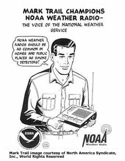These days, people are sticking legislation into GitHub at a furious pace. It is all the rage among the legal-information smart set. The whole thing seems to have started about fifteen months ago with a quote from a toiler in the vineyards of the New York State Senate, written up in Wired, the Boy’s Life of the technorati. Said he: “I’m just in love with the idea of a constituent being able to send their state senator a pull request”.
I could speculate hilariously as to what some of our scandal-ridden New York State Senators might think a “pull request” is, but that’s neither here nor there. A lot more people appear to be just in love with this idea, too, because in the last year there has been a rising tide of legislative gittification here and elsewhere around the globe. I myself am just in love with the name of the German “BundesGit” project, which the smart money is putting at 5 to 1 to win the Greatest Cognitive Dissonance Packaged in a Compound Word category at this year’s Noamy Awards.
Trouble is, I’m not so just in love with gittification as everybody else seems to be. Here’s why:
Git and GitHub are, collectively, a fine revision-control system, and a good system for distributing and managing open-source coding efforts like the ones at https://github.com/unitedstates. Unfortunately, straightforward revision and versioning are not really what happens with most legislation hereabouts. American Federal legislation is not a straightforward revision process at all. That is especially so when post-hoc codification results in an issue-centric bill being splattered all over the topical map of the US Code. Other jurisdictions — notably civil-law countries — at least pretend to have a more rational process for legislative revision, though I am told that in practice it is not so pretty as all that. They are, by and large, having some success with FRBR-based models which closely resemble revisions control, but for a number of reasons those don’t work as well as they might for Federal legislation. Simple processes in which a single version of text is successively modified and the modifications absorbed into a series of versions and branches are not quite enough to map the eddies and backwaters of our process, in which multiple competing drafts of a bill can exist at the same time, bills can be reintroduced in later sessions, and so on.
I am far from the first person to make this point. Others have done so very effectively right along, but the story does not end there. The beauties of revision management do not explain why we are hearing so much git-love. There must be more to be just in love with than the idea that you might keep track of changes in the language of a bill.
I think there are three pieces to it, really. One is the idea that somehow the gittification paradigm describes what the system *ought* to be, and represents the aspirations of its proponents; one is the idea that putting law in github somehow magically puts ownership of the law where it belongs; and one is the idea that gittification is somehow democratizing.
As to the first, everybody would like a simpler system. Belief that putting the text into a particular instrument could or would bring that about is a species of wistful, wishful thinking that is the unique province of technicians. Technical people of all stripes believe that about a lot of things — the idea that somehow just having the right tool changes both the materials and the quality of the workmanship are an understandable and appealing part of the romance of geekdom. And sometimes a change in tooling brings about an unmistakable and positive change in way things really are. I am thinking, for some reason, of the invention of interchangeable parts, which obviously brought about vast changes in manufacturing and ultimately in everyone’s standard of living — and also gave rise to a crop of industrial utopias founded in the belief that virtue would flow from industrial organization: the Ephrata Cloisters and New Harmonies of more a century-and-half back.
I’m OK with certain amount of techno-utopianism; a lot of good ideas got their start in those cloisters. But the romance of gittification is part of a more expansive intellectual conceit — the idea of law as code. Lessig brilliantly described idea of code (and technology generally) shaping behavior and potential in ways traditionally reserved for law. But code-is-law is not reversible into law-is-code. There are lots of reasons why not; some are facets of the process by which law is created, and some have to do with how the language works and what it is expected to do. Law is nowhere near as deterministic or precise as code and the process that creates it is a lot messier. There is often carefully calculated imprecision in statutes and regulations. Geeks don’t like that, because they want law to be more computationally tractable, and they often say so loudly in the same forums where legislative gittification gets a big round of high-+1s. Imprecision has a very valuable purpose in law, where flexibility of interpretation is often desirable, and not so much in code. If you want to know what “law is code” looks like, consider the rigidly precise algorithms of the Federal sentencing guidelines, or the “three strikes” law, and tell me if it looks like Utopia to you.
But I’m just being cranky, sorta. There’s nothing wrong with romance, even if it is unlikely to produce meaningful change, so long as we avoid confusing it with having actually caught the unicorn. There is also a lot that is admirable about a community wanting ownership of the law that it is expected to live by. The slogan of SwaziLII — an open-access legal publisher in Swaziland — is “kwetfu” . It means “it is ours”. In South Africa, visitors to Johannesburg are shown, with great pride, the public monument to the 1994 Constitution. It’s important that people feel ownership of the law. Postcolonial societies feel it strongly, and they celebrate it and they build monuments to it. Geeks stick things in github as a way of claiming it for their culture. In that respect gittification is a symbolic act that says a lot about where we are in 2013 and why. I respect the symbolism, and think it’s a shame that we have been collectively driven to such a need to reassert ownership. I just don’t want to confuse the symbolism with something that improves the substance.
But what about democratization? We may be just in love with the citizenry submitting pull requests, but that doesn’t mean the citizens have any idea how. And it is a little disturbing to think that we might be subconsciously restricting our definition of citizenship to those who can submit pull requests. I say that mostly for effect — I don’t think that anyone is being consciously elitist here. But I do think that many of the same people who celebrate gittification also routinely (and loudly) condemn government behavior that is unwittingly exclusionary in exactly the same way that GitHub is. It’s natural for technicians of all stripes — whether they are legislative, political, and policy wonks, or people who frequent hackathons, or all of the above — to become so acclimatized to their own technical knowledge and environment that they forget that others just don’t have a clue about any of that stuff, and are effectively shut out. The biggest problem with legal information has always been that the people who create it have no reason to realize that there is a problem with access, because they themselves have it. And in that respect the Gitterati are no different.
Once upon a time, regulations.gov was useless if you didn’t know a lot about what agency regulates what. Today, you can’t be a citizen of New GitHarmony if you don’t know how to turn the knobs of GitHub. That’s not an argument against making systems that permit citizen participation in the legislative process. I’ve never liked the sort of don’t-bring-gum-to-school-unless-you-bring-enough-for-everyone, digital-divide arguments that some use to bludgeon Internet projects. You have to start somewhere, and maybe it’s worth remembering that we haven’t shut down the libraries because the basic literacy rate in the US is under 100%. But don’t imagine for one moment that an average constituent is going to submit a pull request. And think about who you’re really speaking to. As of January, 2013, the population of the United States was estimated at 315,968,000. GitHub claims 3 million users, not all of whom are in the US. Sounds an awful lot like the 1 percent to me.





 weather predictions, and to create weather-related services, bulk legislative data can enable the creation of services that predict the climate for business, for social innovation, and for all of the things that legislation touches. It’s common to talk in some vague way about bulk data “creating a climate” that “fosters innovation” or “enables new products and services”. That’s unfortunately vague, the more so because the specifics are astonishing. In addition to the usual services related to accountability or to (say) environmental issues, there are very narrowcast services out there — my particular favorite is legislation related to online poker, which is apparently very closely monitored by a lot of people who report it in many publications, online and off. There are no doubt a kajillion newsletters and niches like it.
weather predictions, and to create weather-related services, bulk legislative data can enable the creation of services that predict the climate for business, for social innovation, and for all of the things that legislation touches. It’s common to talk in some vague way about bulk data “creating a climate” that “fosters innovation” or “enables new products and services”. That’s unfortunately vague, the more so because the specifics are astonishing. In addition to the usual services related to accountability or to (say) environmental issues, there are very narrowcast services out there — my particular favorite is legislation related to online poker, which is apparently very closely monitored by a lot of people who report it in many publications, online and off. There are no doubt a kajillion newsletters and niches like it.



